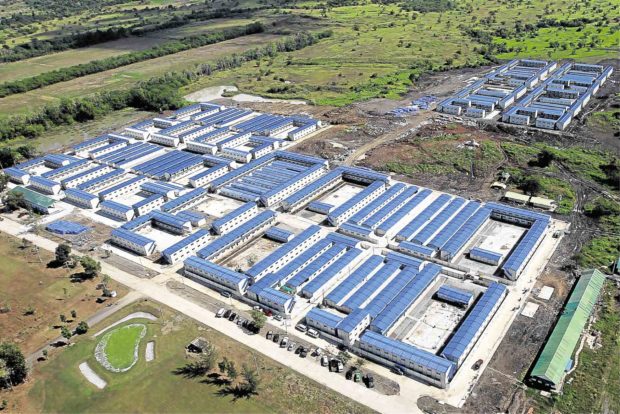DOH wants mega drug rehab center ‘reconfigured’

FIRST, BIGGEST With its 10,000-bed capacity, the DATRC is the government’s biggest rehab center. —INQUIRER PHOTO
The Department of Health (DOH) is looking into the possibility of reconfiguring the mega drug rehabilitation center in Nueva Ecija to cater to “more difficult” cases of drug addiction.
“Let’s just try to make the most out of it,” said Health Secretary Francisco Duque III, when asked yesterday by reporters to comment on former Dangerous Drugs Board (DDB) chair Dionisio Santiago’s statement that the 10,000-bed mega drug facility was a “miscalculation.”
Duque said that “the big drug rehabilitation centers should probably be reconfigured so they can provide better services for the more difficult cases of drug addiction.”
“Community-based facilities are also OK because they’re more accessible. At the same time, we can take advantage of family and community support,” Duque added.
Presidential prerogative
Article continues after this advertisementSenators conceded on Wednesday that it was the prerogative of President Rodrigo Duterte to let go of Santiago after the latter made statements contradicting the chief executive.
Article continues after this advertisementSantiago announced his resignation on Monday, after just five months on the job. Santiago received a call from Executive Secretary Salvador Medialdea, in which he was told that Mr. Duterte wanted him to resign.
“That’s the call of the President and that’s the call of Santiago to resign,” Senate President Pro Tempore Ralph Recto told reporters.
But he agreed that the rehabilitation center was not being put to good use given that it was only currently occupied by 400 drug users.
In a separate interview, Minority Leader Franklin Drilon said: “If the President has lost confidence [in him] for the reasons known only to the President, then that is the legal situation.”
Training academy
Instead of quibbling over the effectiveness of the facility, Senate Majority Leader Vicente Sotto III said that it could be used as “the country’s mega drug enforcement academy” that the PDEA could oversee.
“With that size, we could produce a thousand agents per batch,” said Sotto, explaining that other law enforcement agencies could avail of the drug interdiction training program.
Sotto likened the idea to that of Thailand’s International Law Enforcement Academy.
However, Caloocan Bishop Pablo Virgilio David regretted Santiago’s resignation, saying it was a “huge loss.”
Sen. Risa Hontiveros said that Santiago’s resignation came “in the midst of the earnest efforts of the DDB and the Philippine Drug Enforcement Agency to come up with a new and more humane policy to address the country’s drug problem.” —With a report from Julie M. Aurelio